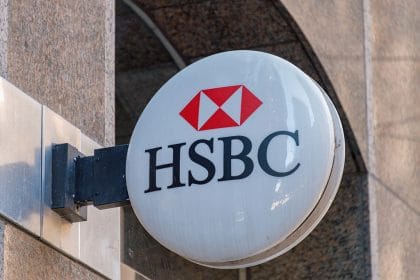[ad_1]
The lowering interest loans and rising bad loans in H1 2020 have impacted the bank’s profitability to a great extent. HSBC also faces major challenges for its global restructuring plans due to the rising geopolitical tensions between the U.S. and China.
On Monday, August 3, UK’s biggest bank HSBC Holdings plc (NYSE: HSBC) reported a whopping 65% drop in its pre-tax profits for the first half of 2020. During the first half of the year, HSBC’s profits stood at a mere $4.3bn against $12.4bn in the same period last year. The revenue dropped 9% to $26.7 billion. However, the stayed fairly above the analysts’ expectations of $26.41 billion. After the news, HSBC stock lost 4.99% in the pre-market today. The current HSBC stock price level is$ 21.52.
The London-based bank said that its revenue tanked as credit losses were worse than expected. The bank said that the economic meltdown by the COVID-19 crisis weighed majorly on its profit books. The major hurting points were the interest rates remaining low and the rising bad loans. HSBC CEO Noel Quinn said:
“Our first half performance was impacted by the Covid-19 pandemic, falling interest rates, increased geopolitical risk and heightened levels of market volatility. The first six months of 2020 have been some of the most challenging in living memory. Due to the Covid-19 pandemic, much of the global economy slowed significantly and some sectors drew to a near total halt.”
While HSBC operates from London, a majority of its profits come from the Asian financial hub of Hong Kong. With the “deterioration in consensus economic forecasts”, HSBC said that its credit losses for 2020 can sink to the tune of $13 billion. Going further the bank expects more businesses to default on repayments. Hence, it has already set aside $8 to $13 billion to absorb the impact of bad loans.
This is more than the earlier estimated budget kept aside due to the COVID-19 economic slowdown. The bank has already given $27 billion in customer relief and given over 700,000 payment holidays on credit cards, mortgages, and loans.
U.S.-China Tensions and Planned HSBC Restructuring
Apart from the coronavirus economic slowdown, HSBC said that it faces the heat of rising geopolitical tensions between the U.S. and China. The bank finds itself embroiled in the political battle with China’s latest imposition of national security law in Hong Kong. As a result, it finds difficulty in restructuring its global operations. HSBC’s group chief chief executive Noel Quinn said:
“We will face any political challenges that arise with a focus on the long-term needs of our customers and the best interests of our investors. Current tensions between China and the US inevitably create challenging situations for an organisation with HSBC’s footprint. However, the need for a bank capable of bridging the economies of east and west is acute, and we are well placed to fulfill this role.”
Despite these challenges, HSBC will “accelerate implementation” of its planned restructuring which it announced in February 2020. In this plan, the bank aims to merge its wealth management units with retail banking. Besides, HSBC also aims to reduce its branch network in the United States. As a result, it would cut down nearly 35,000 jobs as announced in February. Speaking about this restructuring plan, Quin said:
“We are moving forward with these plans wherever we can. At the same time, our operating environment has changed significantly since the start of the year. We will also, therefore, look at what additional actions we need to take in light of the new economic environment.”
Quin said that his bank is capable to meet these challenges and steer ahead with the focus on long-term growth. Let’s wait and see how the future will affect HSBC performance and stock.

Bhushan is a FinTech enthusiast and holds a good flair in understanding financial markets. His interest in economics and finance draw his attention towards the new emerging Blockchain Technology and Cryptocurrency markets. He is continuously in a learning process and keeps himself motivated by sharing his acquired knowledge. In free time he reads thriller fictions novels and sometimes explore his culinary skills.
[ad_2]
Source link



